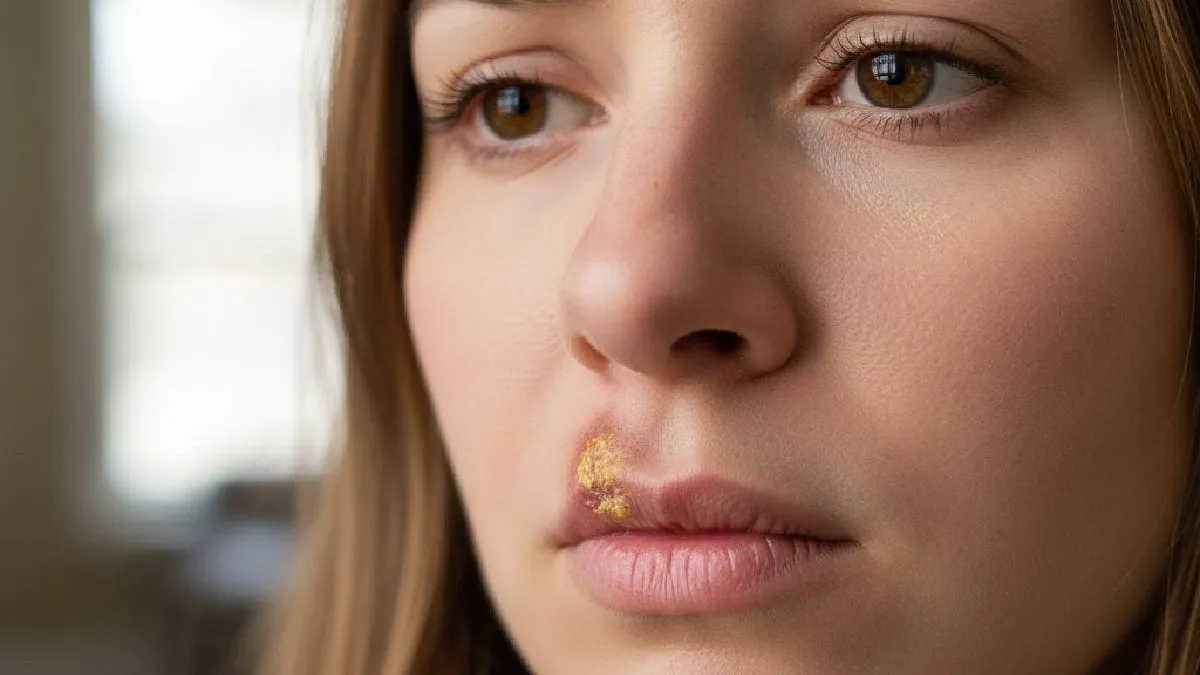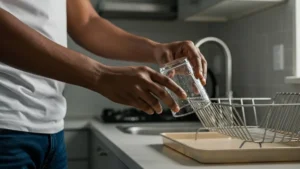From antiviral medications to home remedies, these are the most effective options to speed up recovery from cold sores.
A sudden burning sensation on your lip is often the first sign that something is wrong. Within hours, small blisters appear that are annoying and difficult to hide.
These are cold sores, a common infection that affects millions of people worldwide, and although it does not pose a serious health risk, it can become a source of both aesthetic and physical discomfort.
Cold sores are caused by the herpes simplex virus ( HSV ), which remains latent in the body and is activated when the body’s defenses are lowered.
Stress, fatigue, hormonal changes, and a weakened immune system are some of the most common triggers. According to dermatologist Cristina Villegas, ” oral herpes can remain hidden for a long time and manifest at any time .”
How long does a cold sore last?
The typical outbreak cycle for cold sores lasts between seven and fourteen days. In most cases, the lesions disappear without a trace, although in more complex situations they can persist longer.
If the blisters do not improve after two weeks or worsen, specialists recommend seeing a doctor to rule out complications.
Effective treatments to eliminate cold sores quickly
The key to reducing the impact of cold sores is to act immediately upon the first signs of discomfort. Among the most recommended options are:
- Topical antivirals: Creams and ointments that help slow the spread of the virus and speed healing.
- Cold application: Using ice wrapped in a cloth can reduce inflammation and relieve pain.
- Analgesia: Medications such as ibuprofen or paracetamol reduce discomfort during the outbreak.
- Do not manipulate the lesions: touching or scratching the blisters can worsen the condition and promote transmission.
Natural remedies that can help
Although they are not a substitute for medical treatment, some home remedies can complement recovery:
- Aloe vera, applied directly to the blisters, provides anti-inflammatory and healing properties.
A balanced diet rich in fruits, vegetables, and proteins strengthens the immune system. Reducing your intake of nuts and other foods rich in arginine can be beneficial, as this substance promotes viral replication.
What to do if cold sores don’t get better?
When outbreaks recur frequently or lesions take too long to heal, a visit to a dermatologist is necessary. In these cases, a longer or stronger antiviral treatment may be recommended.
How to hide a cold sore
Beyond the pain, cold sores can cause cosmetic discomfort. To conceal them, it’s recommended to keep your lips moisturized with specific balms and then apply high-coverage concealers that match your skin tone. It’s important to use non-comedogenic products and ensure the applicators are clean.
Foods and habits to avoid during an outbreak
Some products can intensify the discomfort in the affected area. These include:
- Very spicy or seasoned dishes.
- Citrus fruits that irritate the skin.
- Very hot drinks such as coffee or tea.
- Prevention: How to avoid new outbreaks of cold sores
Cold sores recur in many people, so reinforcing prevention is just as important as treatment. Experts advise:
- Maintain a strong immune system with good nutrition and adequate rest.
- Reduce stress levels through relaxation techniques or physical activity.
- Avoid kissing other people or sharing personal items during outbreaks, as the virus is highly contagious.























+ There are no comments
Add yours